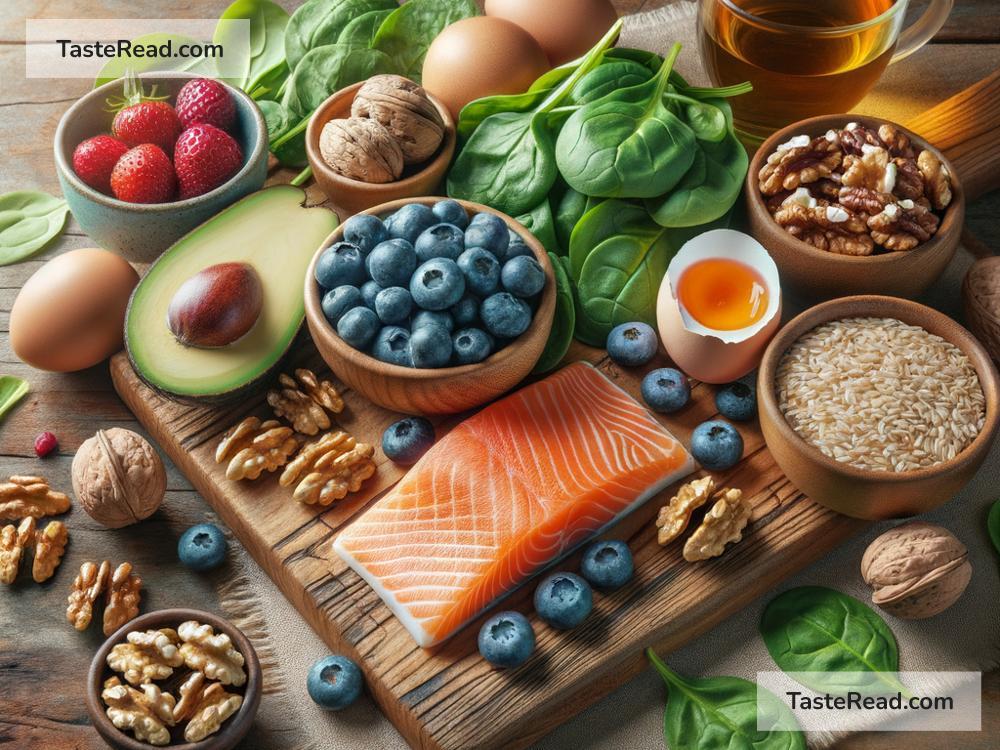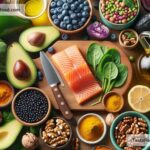Foods for Reducing Language Impairment: Nourishing Your Brain for Better Communication
Language impairment can affect people in different ways, making it harder to understand or express thoughts through speech, reading, or writing. Whether caused by developmental issues, illness, or injury, studies suggest that diet plays an important role in brain health, which can influence our ability to communicate. Simply put, what you eat can help improve brain function and potentially support better language skills.
In this blog, we’ll explore some foods that may support brain health and reduce language impairment, explained in simple terms. Remember, while food can help, it’s always best to pair these with proper medical advice, therapy, or treatment recommended by professionals.
Why Does Food Matter for Brain Health?
Your brain needs fuel to work properly, just like a car needs gas. The fuel comes from the food we eat. Certain foods contain nutrients that improve brain connections, protect brain cells, and help communication between different parts of the brain. These processes are essential for good language function.
Foods That Help Reduce Language Impairment
Here are some types of foods that can nourish your brain:
1. Fatty Fish (Like Salmon and Mackerel)
Fatty fish are loaded with omega-3 fatty acids, which are like brain boosters. Omega-3s are special fats that help brain cells “talk” to each other more effectively. Studies show that these fats are important for healthy brain development and can improve memory, focus, and communication skills.
If you or someone you know struggles with language impairment, adding omega-3-rich foods to their diet could be helpful. Include fish like salmon, sardines, and mackerel a couple of times a week.
For vegetarians, walnuts, flaxseeds, and chia seeds are good plant-based sources of omega-3.
2. Eggs
Eggs are a superfood for the brain because they contain choline, a nutrient that supports brain development and memory. Choline helps your brain produce acetylcholine, a chemical that helps you think and remember things.
Eggs also have important vitamins like B6 and B12, which improve mood, focus, and communication skills. Eating eggs regularly—boiled, scrambled, or in an omelet—is an easy way to get these brain-friendly nutrients.
3. Leafy Greens (Like Spinach and Kale)
Leafy greens are packed with nutrients like vitamins C and K, folate, and antioxidants that protect brain cells from damage. Folate is especially important because it helps your brain grow and stay sharp. Many studies have shown that folate is connected to better brain function and reduced cognitive issues.
Adding spinach, kale, broccoli, or lettuce to your meals can help reduce inflammation and keep your brain healthy over time. You could eat them in salads, cooked dishes, or even smoothies.
4. Berries
Blueberries, strawberries, and other berries are rich in antioxidants that help reduce damage to brain cells. They also contain compounds that improve learning and memory. Antioxidants fight stress in the brain, making it easier to focus and communicate.
Include a handful of berries in your diet as a snack, mix them into yogurt, or add them to oatmeal for a sweet and healthy treat.
5. Nuts and Seeds
Nuts like almonds, walnuts, and sunflower seeds are packed with vitamin E and healthy fats that keep your brain cells healthy. Vitamin E is known for its ability to protect the brain from aging and stress.
Walnuts are particularly good because they also have omega-3 fats, which improve brain communication. Sprinkle nuts and seeds on your meals, eat them as snacks, or use nut butter for a nutrient-rich option.
6. Whole Grains
Whole grains like oatmeal, brown rice, and quinoa are full of energy that your brain uses to stay sharp. These foods slowly release sugars into your bloodstream, giving you long-lasting energy that helps focus and understanding.
Processed grains like white bread and sugary cereals don’t help your brain as much, so choose whole grains for better language and thinking skills.
7. Avocado
Avocado is a creamy fruit full of healthy fats that keep your brain working smoothly. These fats improve blood flow to your brain, helping it function better. Avocado is also rich in vitamins that support learning and memory.
Mash avocado into guacamole, spread it on toast, or add it to salads for a brain-friendly meal.
8. Dark Chocolate
Good news for chocolate lovers: dark chocolate can help your brain! It’s rich in flavonoids, caffeine, and antioxidants, which improve focus and memory. Dark chocolate can also boost your mood, making it easier to communicate.
Choose dark chocolate that has at least 70% cocoa and enjoy it in small amounts.
Other Tips to Support Language Skills
Besides eating brain-friendly foods, here are some additional ways to support language development:
– Stay hydrated: Drink enough water every day, as dehydration can affect brain function.
– Exercise regularly: Physical activity improves blood flow to the brain.
– Get enough sleep: Your brain works better when it’s well-rested.
– Stay socially active: Talking, playing games, and interacting with others keep language skills sharp.
Conclusion
While food alone can’t cure language impairment, eating brain-friendly foods can support better thinking, memory, and communication. Incorporate fatty fish, eggs, leafy greens, berries, nuts, whole grains, avocado, and dark chocolate into your meals to nourish your brain. Pair a healthy diet with proper therapy and professional guidance to see real improvements in language skills.
Taking small steps to eat better can make a big difference over time. Remember: a healthy brain is key to better communication!


